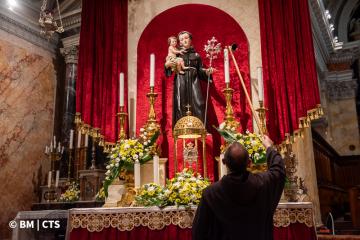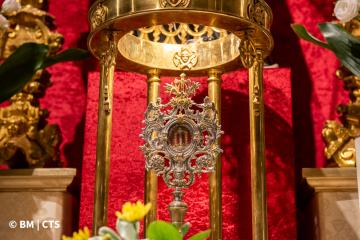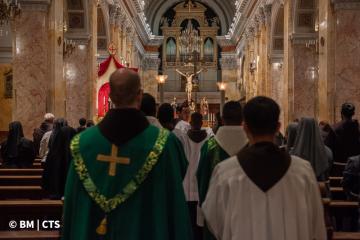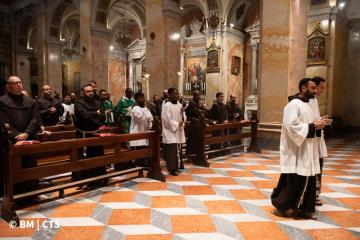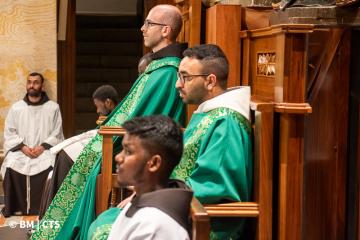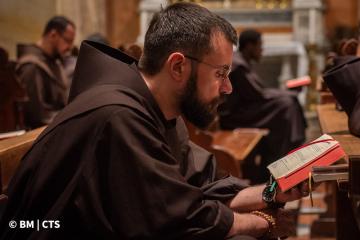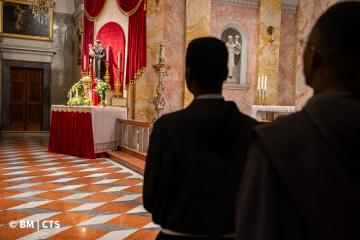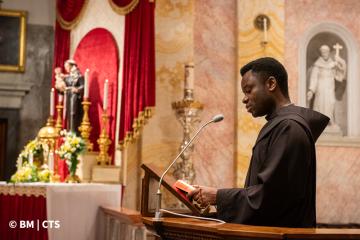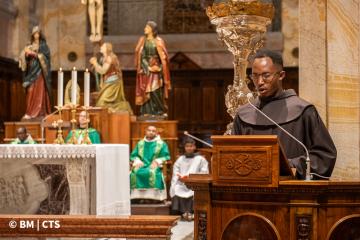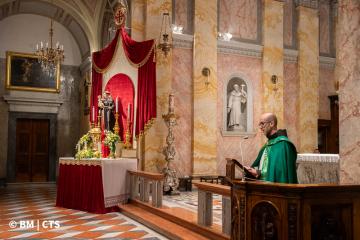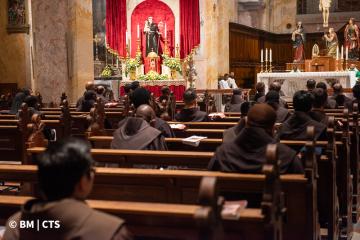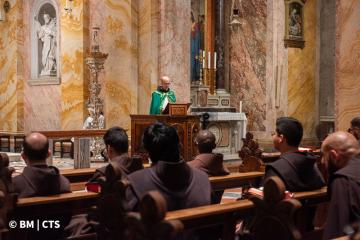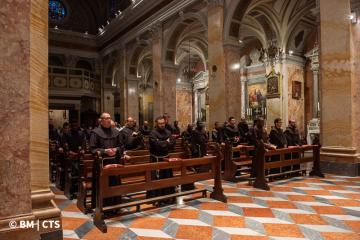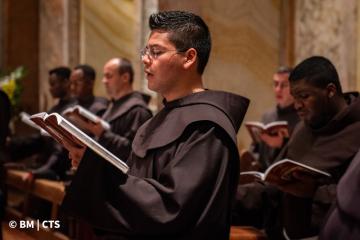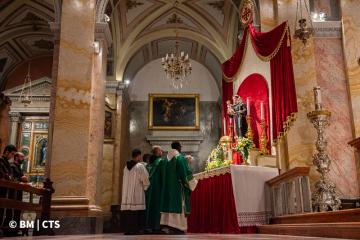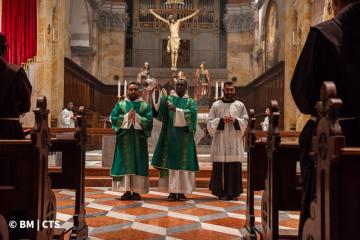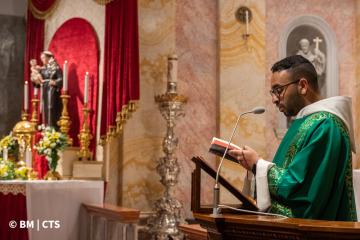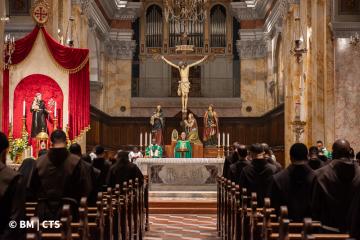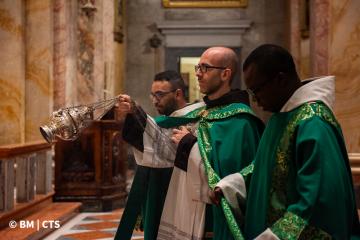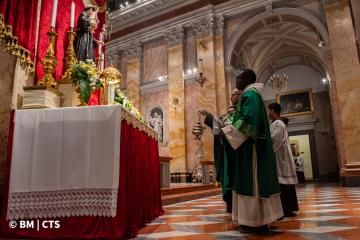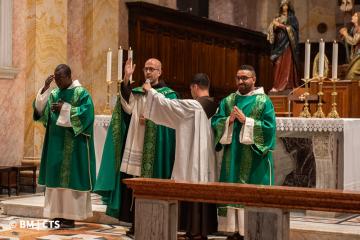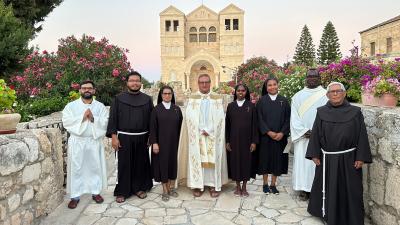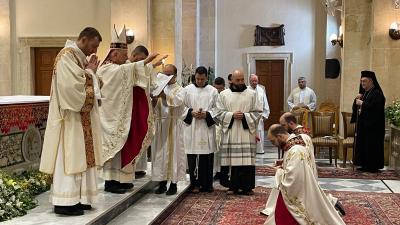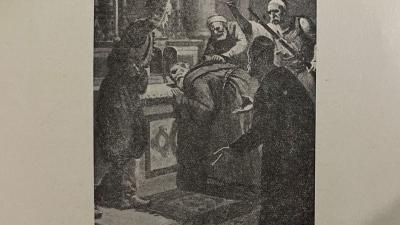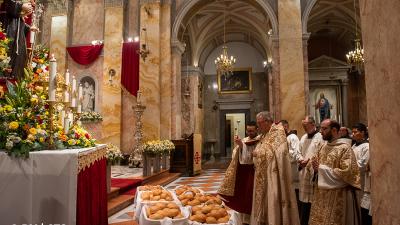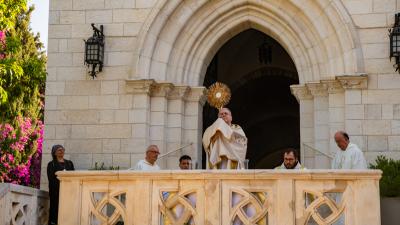
The Triduum for the feast-day of St Anthony has begun today, Sunday 9 June and will be celebrated by the friars of the Custody of the Holy Land with great solemnity on 13 June.
Fra Luca Di Pasquale, a friar minor from the Seraphic Province of Assisi who discussed his degree at the Studium Biblicum Franciscanum in Jerusalem only a few days ago, was asked to preach on the feast-day.
St Anthony, patron saint of the Custody of the Holy Land
“Thanks to this task which has been given to me,” fra Luca said, “I have been able to study in greater depth the close bond that unites Anthony and the Custody. It dates back to 1917 when, following the threat of expulsion of the Franciscan friars of Italian origin from Jerusalem, the triduum was proclaimed in honour of the great Portuguese saint, to ask for his intercession and avoid the decree being executed. St Anthony protected the order and on 13 June 1920, in front of the statue at the saint’s altar, he was officially chosen as the patron saint of the Custody.”

Every year, the patron saint is honoured through the prayer of the triduum, in memory of the first triduum celebrated more than one hundred years ago: the celebration takes place during the daily vespers and closes with the start of the solemnity on 12 June.
The miracles of St Anthony
“To choose which perspective I wanted to build my reflections around,” fra Luca continued, “first of all I wondered what the best known aspect of this saint’s life was, because devotion to him is extraordinary all over the world. The obvious starting point were his miracles: Anthony is the thaumaturge par excellence, i.e. a person who performs miracles and grants graces. I decided to structure the three appointments around the three miracles.”
“This evening I told the story of the miracle of the mule, in which the animal, after a long fast, refuses its fodder and prostrates itself in front of the Eucharist. In this miracle, at the centre there is the theme of the Eucharist and the attitude of Anthony, who never brought attention to himself but always to the figure of Christ.”

On the second evening, fra Luca will focus attention on the sermon to the fish. “I would say it is one of the most famous stories connected to St Anthony,” he continued, “he spoke to the fish in the river after his sermons to people had been ignored and this produced numerous conversions. There the theme of the Word emerges and the profound impact that St Anthony had on people through his sermons and his devotion to spreading the Word of God.”
“The third miracle is the one linked to St Anthony’s bread, which is distributed every year here as well, at the end of the first solemn vespers, and it is linked to a miracle of resurrection of a drowned child. His mother, who had placed all her trust in Anthony, then decided to distribute her resurrected child’s weight in bread. This miracle is linked to prayers of intercession.”
“My purpose is to bring back the focus on the topic of the miracles, which nobody talks about any more today and which appears too distant from today’s sensitivity, but we have to understand that it is not extraneous to our everyday life, as it contains within it prayer and the way of entering into a relationship with Jesus.
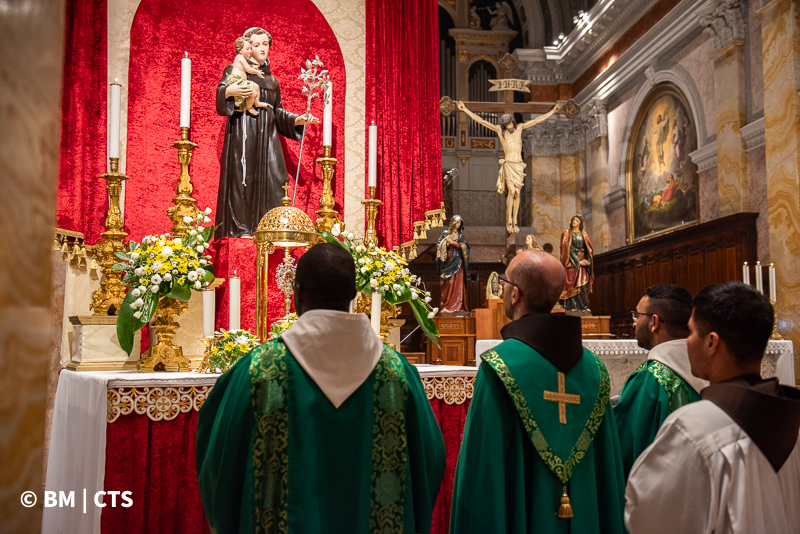
In the last place, the image of Anthony as a preacher highlights the urgency today of preaching. “In Anthony’s times,” fra Luca concluded, “there were many heretics. Today, on the other hand, there are no heretics in such an explicit way as in Anthony’s times, but there is a great deal of disbelief. As a consequence, we need preachers, above all in the situation where we live, here in the Holy Land, where the relationship and coexistence with the other religions force us to question ourselves and support our faith.”
Silvia Giuliano


